Your friends and family are gathered, and wonderful aromas are coming from the kitchen. Thanksgiving is a special time to enjoy good food and fellowship, but the festivities provide many harmful opportunities for your pet. Our team at Palm City Animal Medical Center offers advice, to help ensure your pet stays safe on turkey day.
#1: Your pet will be thankful you kept them away from the turkey
The turkey is the centerpiece of the feast, but you will be doing your pet a favor if you ensure they don’t partake. The big bird provides several dangers for your pet.
- Turkey skin — The skin is high in fat and, while any change to your pet’s diet can cause gastrointestinal upset, high-fat foods are especially dangerous, because they can trigger pancreatitis. This extremely painful condition can lead to severe, life-threatening consequences for your pet. Certain breeds, including miniature schnauzers, miniature poodles, and cocker spaniels, are high risk.
- Turkey brine — This salty solution can be tempting for your pet, but if ingested, the brine can cause salt toxicity. Increased salt levels in your pet’s bloodstream can lead to vomiting, diarrhea, dehydration, kidney damage, and seizures.
- Turkey bones — Cooked turkey bones tend to break and splinter easily. The sharp pieces can cause your pet to choke, or injure their mouth or esophagus.
- Turkey meat — If your pet ingests a less than fully cooked piece, they are susceptible to salmonella. Signs include lethargy, inappetence, and bloody or mucoid diarrhea.
#2: Your pet will be thankful you kept them away from the sides
In addition to the high-fat content in the decadent sides that could trigger pancreatitis, particular foods found in popular Thanksgiving dishes are harmful to pets.
- Onions — Found in several popular casseroles, onions and similar vegetables, including chives, garlic, and leeks, can weaken your pet’s red blood cells, resulting in anemia. Signs include weakness, vomiting, and pale mucous membranes.
- Grapes — Many people use grapes and raisins in their stuffing and other sides, but they can cause kidney failure in pets. Signs include lethargy, increased thirst and urination, and inappetence.
- Alcohol — While not technically a side, alcoholic drinks are commonly served with holiday meals. Pets are particularly sensitive to alcohol, and will exhibit signs including lethargy, incoordination, drooling, vomiting, and collapse.
- Raw yeast dough — Bread baked from scratch can make the holiday meal more special, but if ingested, raw yeast dough can swell, causing gas and bloating, which can lead to serious consequences. In addition, the yeast produces alcohol during fermentation, and can cause alcohol toxicity.
#3: Your pet will be thankful you kept them away from the dessert table
Sweet treats are a must after the big meal, but many common dessert ingredients can harm your pet.
- Chocolate — While all forms of chocolate are harmful to pets, dark chocolate and baker’s chocolate are the most problematic. The caffeine and theobromine found in chocolate can cause central nervous system stimulant effects in pets. Signs include agitation, vomiting, and diarrhea.
- Xylitol — This artificial sweetener may be used to make diabetic friendly treats, but xylitol can cause a sudden drop in your pet’s blood sugar, causing incoordination and seizures.
- Nuts — All nuts are high in fat, and therefore, can trigger pancreatitis. Macadamia nuts are especially dangerous for pets, causing muscle weakness, depression, and vomiting.
#4: Your pet will be thankful you kept them away from the decorations
Decorating your home can put you in the holiday spirit, but your pet is sure to investigate the pretty additions. Ensure you choose pet-friendly ornamentation. Dangerous decorations include:
- Candles — Pumpkin spice and autumn leaf scents provide the right ambience on Thanksgiving day, but your pet’s investigative nose may get burned. In addition, if they knock the candle over, they could start a fire.
- Floral arrangements — Several popular decorative plants, including lilies, chrysanthemums, and autumn crocuses, are toxic to pets. If they ingest the plant or drink the water in the vase, they could be in danger.
#5: Your pet will be thankful you kept them away from the party
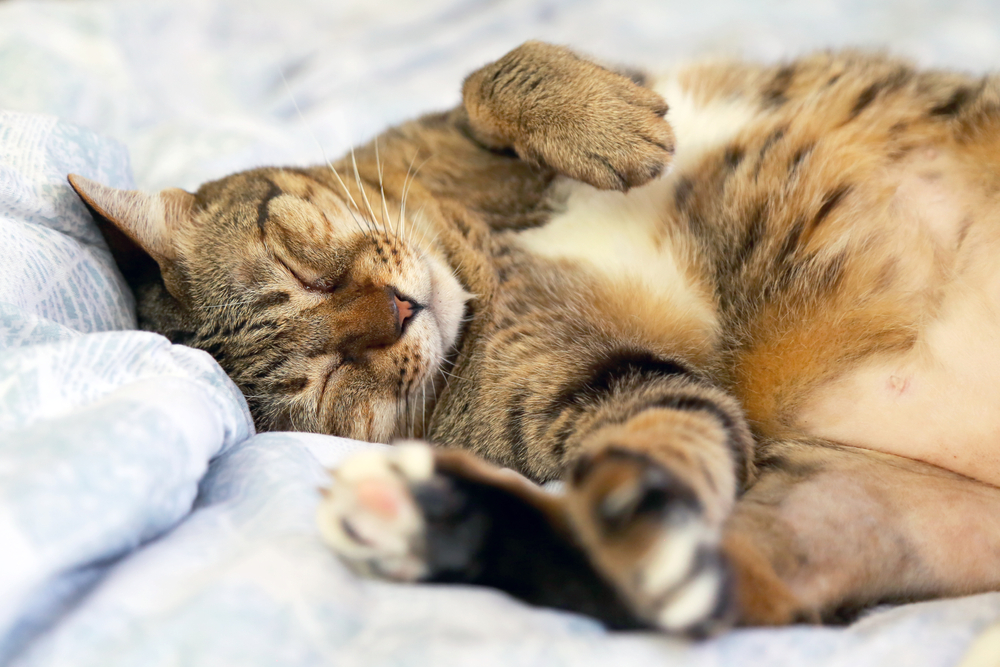
When hosting a gathering, ensure your pet does not become overwhelmed or stressed by your guests. Steps to take include:
- Safe space — Provide an area where your pet can escape if they do not want to mingle, and ensure your guests won’t need to access the space. If your pet is on the shy side, sequester them in their own room, and check on them frequently, to ensure they aren’t becoming upset.
- Identification — Despite your best efforts, your pet may take advantage of your distractions and take the opportunity to run away. The American Animal Hospital Association (AAHA)-accredited team at Palm City Animal Medical Center recommends microchipping your pet as the best way to have them returned to you should they go missing. You should also ensure they are wearing a collar with current identification tags.
Your pet will have many reasons to be thankful on turkey day if you follow this advice. If you would like your pet microchipped as you prepare for Thanksgiving, contact our team at Palm City Animal Medical Center, to schedule an appointment.

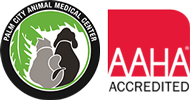
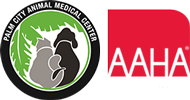

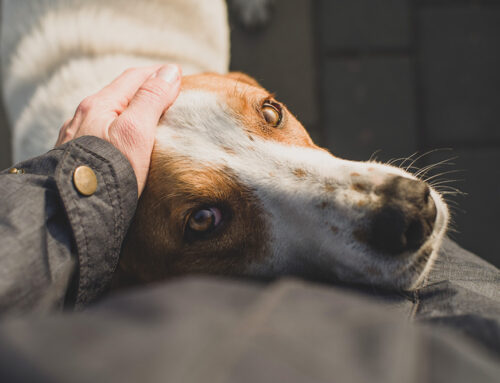
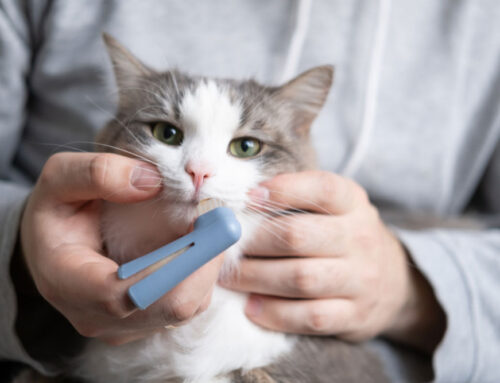


Leave A Comment